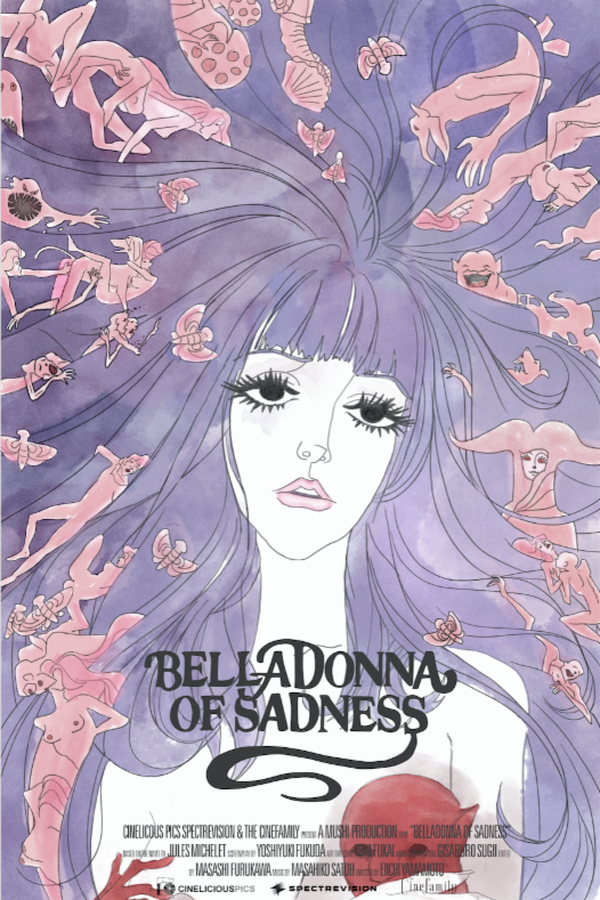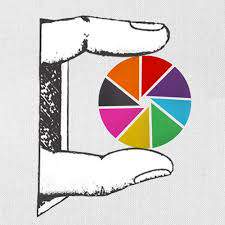Belladonna of Sadness (1973) 2016

A young woman’s life is tragically disrupted on her wedding night, leading to a descent into madness and a thirst for revenge. She makes a pact with the Devil, which transforms her into a captivating and enigmatic figure. The story blends medieval imagery with eroticism, creating a dreamlike and surreal narrative that explores themes of desire, vengeance, and the blurring lines between reality and fantasy. It's a visually striking and provocative adult animated film.
Does Belladonna of Sadness (1973) have end credit scenes?
No!
Belladonna of Sadness (1973) does not have end credit scenes. You can leave when the credits roll.
Meet the Full Cast and Actors of Belladonna of Sadness (1973)
Explore the complete cast of Belladonna of Sadness (1973), including both lead and supporting actors. Learn who plays each character, discover their past roles and achievements, and find out what makes this ensemble cast stand out in the world of film and television.
No actors found
External Links and Streaming Options
Discover where to watch Belladonna of Sadness (1973) online, including streaming platforms, rental options, and official sources. Compare reviews, ratings, and in-depth movie information across sites like IMDb, TMDb, Wikipedia or Rotten Tomatoes.
Ratings and Reviews for Belladonna of Sadness (1973)
See how Belladonna of Sadness (1973) is rated across major platforms like IMDb, Metacritic, and TMDb. Compare audience scores and critic reviews to understand where Belladonna of Sadness (1973) stands among top-rated movies in its genre.

Metascore
tbd
User Score


90%
TOMATOMETER

73%
User Score
Take the Ultimate Belladonna of Sadness (1973) Movie Quiz
Challenge your knowledge of Belladonna of Sadness (1973) with this fun and interactive movie quiz. Test yourself on key plot points, iconic characters, hidden details, and memorable moments to see how well you really know the film.
Belladonna of Sadness Quiz: Test your knowledge on the haunting story and characters of 'Belladonna of Sadness.'
What traumatic event does Jeanne experience on her wedding night?
She is subjected to a brutal gang-rape
She receives a heartfelt gift from Jean
She gives birth to a child
She runs away with her lover
Show hint
Full Plot Summary and Ending Explained for Belladonna of Sadness (1973)
Read the complete plot summary of Belladonna of Sadness (1973), including all major events, twists, and the full ending explained in detail. Explore key characters, themes, hidden meanings, and everything you need to understand the story from beginning to end.
Jeanne and Jean are a newlywed couple living in a serene rural village in medieval France. Tragically, on Jeanne’s wedding night, she endures a horrific gang-rape orchestrated by the local baron and his courtiers. When she returns to her husband Jean, filled with terror, he tries to soothe her fears, suggesting they can forget the past and start anew. However, in a shocking twist, Jean strangles her into unconsciousness, overwhelmed by his own turmoil, before fleeing their home in shame and distress.
That very night, Jeanne starts experiencing eerie visions of a spirit with a phallic head who claims to offer her power. This spirit reveals that it has heard her silent plea for help and assures her that it can grow as large and formidable as she desires. Consequently, while famine grips the village and the baron increases taxes to support his war efforts, the couple’s fortunes inexplicably rise. Formerly trapped in the grind of menial labor, Jean is suddenly appointed as the tax collector. Yet his fortunes take a dark turn when the baron brutally cuts off Jean’s hand, punishing him for failing to extract adequate money from the villagers, which plunges Jean into despair and drunkenness.
Jeanne encounters the spirit once again—this time, it has grown in size—and is coerced into a troubling exchange where the spirit rapes her in return for wealth. Despite relinquishing her body to the spirit, Jeanne strongly asserts that her soul still belongs to Jean and God. In a bold move, she borrows a significant sum from a usurer, immersing herself in the trade and ultimately becoming the true authority in the village. When the baron triumphantly returns from war, his wife, consumed by jealousy over the reverence Jeanne commands, accuses her of witchcraft, rallying the townsfolk against her. As chaos ensues, Jeanne desperately attempts to return to her home, only to be refused entry, leading to her brutal assault.
That night, as soldiers close in to apprehend her, Jeanne escapes into the forest. In the wilderness, she forges a pact with the spirit, who unveils himself as the Devil. This deal grants her magical abilities, and upon returning to a village now ravaged by the bubonic plague, Jeanne creates a miraculous cure for the sickness, drawing the villagers to her for assistance. Winning their loyalty, Jeanne leads them in wild rites.
In a twist of fate, a page who has fallen for the baron’s wife asks Jeanne for her help to win her love. She provides him with a love potion, which results in the baron’s wife succumbing to his advances. Unfortunately, when the baron discovers their affair, he murders both of them. Frustrated by Jeanne’s burgeoning power, the baron sends Jean to invite her for a meeting. In an emotional reunion, the couple reconciles, and Jeanne agrees to meet with the baron. However, when he offers her the position of the second-highest noble in exchange for her cure for the plague, Jeanne boldly declines, expressing her ambition to conquer the entire world.
This refusal ignites the baron’s fury, resulting in a death sentence for Jeanne, who is to be burned at the stake. Jean valiantly attempts to protect her but is slain by the baron’s soldiers, inciting a riot among the villagers. As Jeanne is engulfed in flames, a haunting transformation occurs—the faces of the female villagers morph into Jeanne’s likeness, fulfilling a priest’s ominous prophecy: if a witch dies clinging to her pride, her soul will endure and infect those around her. Centuries later, the enduring impact of Jeanne’s spirit is heralded as a catalyst for the French Revolution.
Uncover the Details: Timeline, Characters, Themes, and Beyond!

Coming soon on iOS and Android
The Plot Explained Mobile App
From blockbusters to hidden gems — dive into movie stories anytime, anywhere. Save your favorites, discover plots faster, and never miss a twist again.
Sign up to be the first to know when we launch. Your email stays private — always.
Discover Film Music Concerts Near You – Live Orchestras Performing Iconic Movie Soundtracks
Immerse yourself in the magic of cinema with live orchestral performances of your favorite film scores. From sweeping Hollywood blockbusters and animated classics to epic fantasy soundtracks, our curated listings connect you to upcoming film music events worldwide.
Explore concert film screenings paired with full orchestra concerts, read detailed event information, and secure your tickets for unforgettable evenings celebrating legendary composers like John Williams, Hans Zimmer, and more.



Unlock the World of Movies with Our Comprehensive Wiki
Dive into our Movie Wiki for in-depth film encyclopedia entries, including cast biographies, production trivia, plot synopses, behind-the-scenes facts, and thematic analyses. Whether you’re researching iconic directors, exploring genre histories, or discovering hidden easter eggs, our expertly curated movie database has everything you need to fuel your cinematic passion.

Quick Links: Summary, Cast, Ratings, More

What's After the Movie?
Not sure whether to stay after the credits? Find out!
Explore Our Movie Platform
New Movie Releases (2025)
Famous Movie Actors
Top Film Production Studios
Movie Plot Summaries & Endings
Major Movie Awards & Winners
Best Concert Films & Music Documentaries
Movie Collections and Curated Lists
© 2025 What's After the Movie. All rights reserved.














